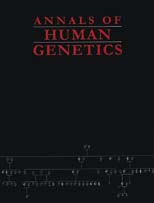No CrossRef data available.
Article contents
Prehistoric and historic traces in the mtDNA of Mozambique: insights into the Bantu expansions and the slave trade
Published online by Cambridge University Press: 09 January 2002
Abstract
A sample of mitochondrial DNA (mtDNA) from the southeastern African population of Mozambique has been shown to have affinities with populations both to its north and south. From the north came sequences that may have been involved in the Bantu expansion (from western, through eastern, to southern Africa), such as members of haplogroups L3b, L3e1a and a subset of L1a. The dating of the major component of Mozambican mtDNAs, the subset L2a of haplogroup L2, displayed an age range compatible with the Bantu expansion. The southern influence was traced by the presence of sequence types from haplogroup L1d, a probable relict of Khoisan-speaking populations that inhabited the region prior to their displacement by the Bantu-speaking incomers. Within historical times, the forced displacement of Mozambicans as part of the slave trade, mainly documented as being to the Americas, generated a differential input of eastern African sequences into the mtDNA pools of the Americas and of Europe, as testified to by the greater number of sequence matches between Mozambique and the Americas, compared to those between Mozambique and Europe.
- Type
- Review Article
- Information
- Copyright
- University College London 2001




